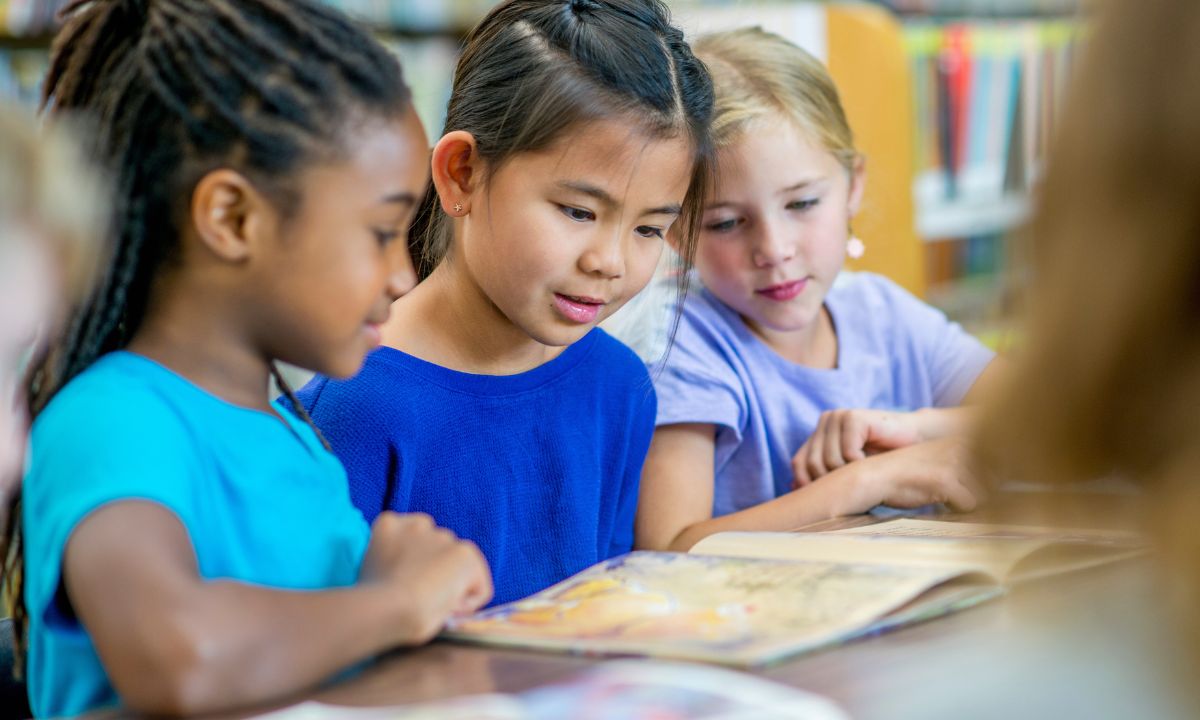When people hear that I work in a preschool, they can easily picture me pretending to drink tea, pinky up from a plastic cup, the wobbly wooden block buildings, and picture books lining the shelves. What may be more difficult to imagine are the history lessons that are happening in that same room.
In my own history classes in high school and college, I learned about many remarkable individuals whose actions, for better or worse, plotted our course forward. Although there are no state or federal requirements to teach history to very young children, it is integral to my preschool classroom.
I teach history because I want my students to understand how change really happens, a lesson that is becoming more critical with each passing day. I don’t teach history so that some 4-year-olds can rattle off important names and dates before they head to kindergarten. They would likely forget those names in a few months anyway.
Nothing is as compelling to a child as another child’s story, so we explore history by learning about young people who helped create change. We focus on wonderful picture books about Sylvia Mendez, Judy Huemann, Claudette Colvin, and Ruby Bridges, all children facing a society that did not recognize their value. Young children inherently understand this experience because not only do they identify with someone having less power than the adults around them, they are also keenly tuned in to issues of fairness.
As we thumb through the book I Am Ruby Bridges, the children always want to examine the illustration of 6-year-old Ruby walking into her school past a crowd of screaming white grown-ups holding pro-segregation signs. They ask about why the adults are so angry. They want to know how Ruby felt being the only kid there at that moment. And I ask them, “What would you do if you were there with her?”
Their answers are thoughtful, powerful, and sometimes a little wild. Among my favorites is the child who said, “I’d give all the kids hammers, even the babies, and we’d hammer down that school and build a new one for everybody.” I love that even the babies are empowered in this re-imagining. And this young child perfectly demonstrated the real key takeaway from all of my history lessons: there are no lone heroes. It takes an organized community and some powerful leaders to make change.
The need to organize real people to work together and support one another through a difficult struggle is one that often gets lost in children’s media. Put a 4-year-old in a Batman t-shirt and they feel like they can do anything by themselves. And many history lessons inadvertently recreate those superhero narratives.
There are extraordinary historical figures like Rev. Dr. Martin Luther King Jr., but when we lionize one person too much we turn them into superheroes, and superheroes aren’t real. Nobody has that much power all by themselves. If history is just a series of superheroes, how can any of us regular folks hope to make any kind of difference?
So we focus on the ways people help one another. We notice, together, that Georgia Gilmore baked pies in order to support the Montgomery bus boycott sparked in part by Claudette Colvin’s unwillingness to give up her seat months before Rosa Parks, and that MLK helped organize many other people to make that boycott happen. We notice that Judy Heumann organized many disabled people to protest effectively for equal rights, and that 9-year-old Sylvia Mendez was the central figure in the first court case to desegregate California schools, a ruling that paved the way for Ruby Bridges to bravely walk into an integrated school.
We notice, our little classroom of very young people, that we all need help sometimes and that helping one another is one of the most powerful things we can do together. It takes the collective effort of many people, even the babies, to create change. As pressure increases in schools across the nation to erase these stories, I am more committed than ever to teaching the kind of history that ensures that these kids will make history of their own.
Suzanne Stillinger
Suzanne Stillinger is an early childhood teacher and accessibility coordinator at New Village in Northampton, Massachusetts. She is a 2024-2025 Teach Plus Senior Writing Fellow, a 2024-25 Teach Plus Massachusetts Senior Policy Fellow, and a Co-Facilitator of the Massachusetts Working Group with Defending the Early Years.



